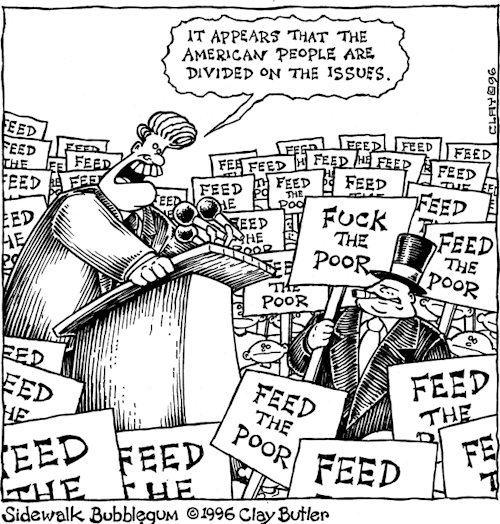
I’ve long maintained that there is a fallacy gap between right and left.  Major right-leaning pundits (Will, Krauthammer, Brooks, and the legions of Am Spec bloggers) far exceed left-leaning pundits (Krugman, E.J.Dionne, and who else is there?) in basic philosophy 101-style argumentative terribleness.
The only evidence I have is my unscientific observations over the past nine or so years. Â For some, this view cannot possibly be correct, since “both sides do it” is a logical and metaphysical fact. Â It isn’t. Â But the fact that most people think this forces any treatment of fallacies, over-the-top rhetoric, etc., to insist on a balance which isn’t there. Â Provide your own examples.
Now there is some, but only some, empirical support for my thesis.  Professors  Jeffrey Berry (Political Science) and Sarah Sobieraj (Sociology) of Tufts have written The Outrage Industry: Political Opinion Media and the New Incivility, which takes an empirical perspective on over-the-top political rhetoric.  In an article in Politico, they write:
That said, the data from our analysis still show that the liberal outrage media is no match for the conservative side. Looking at low levels of outrage—say, two to five incidents per episode—we found that left- and right-leaning programs and blogs were roughly equal. However, as the number of outrage incidents per episode or post increased, the source was more and more likely to be conservative. This is most visible at the far end of the spectrum: The most outrageous cases (with 50 or more incidents per episode or post) come almost exclusively from conservative sources.
The outrage measure is itself kind of an interesting notion. But I’ll leave that for another time. In the meantime, check out the article (see if you can spot the balance-mongering!), and the book.

